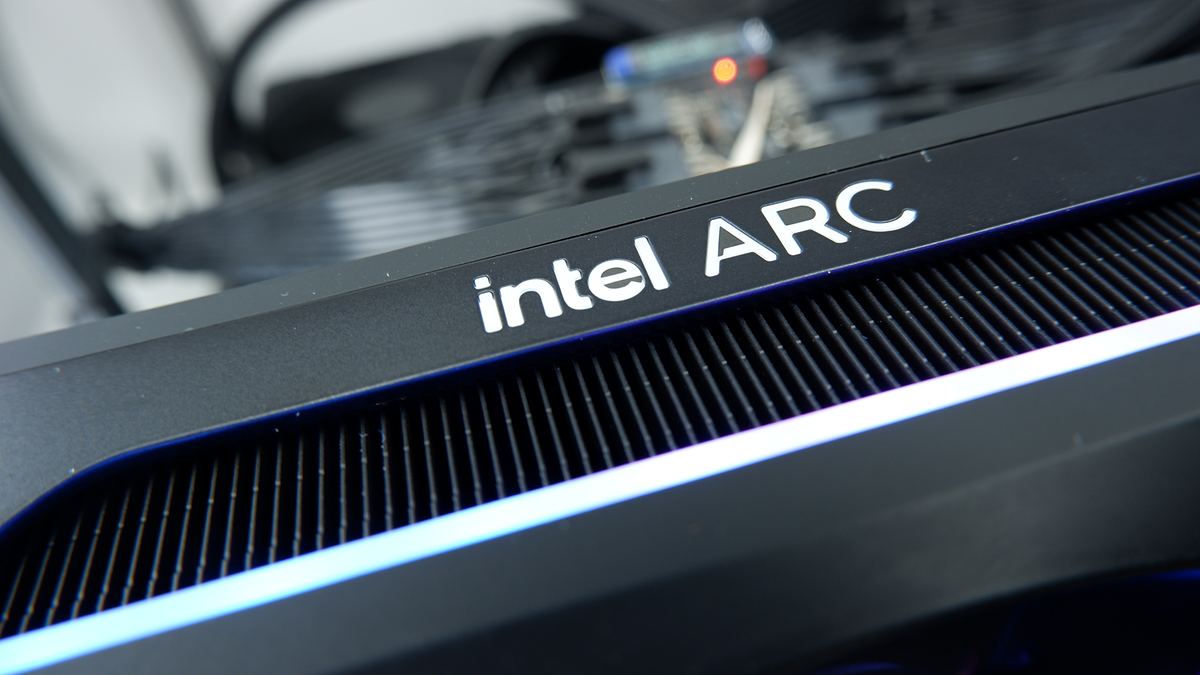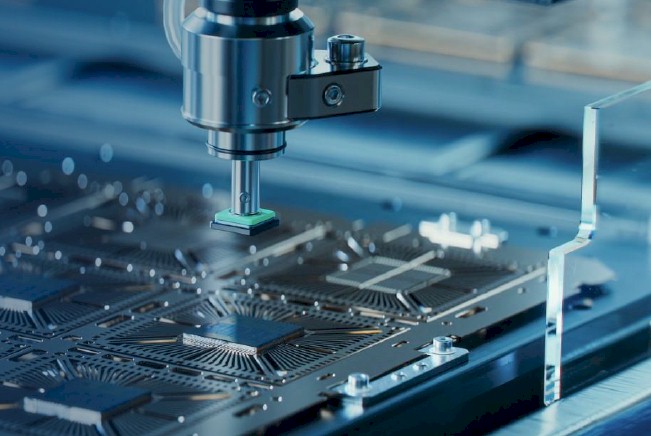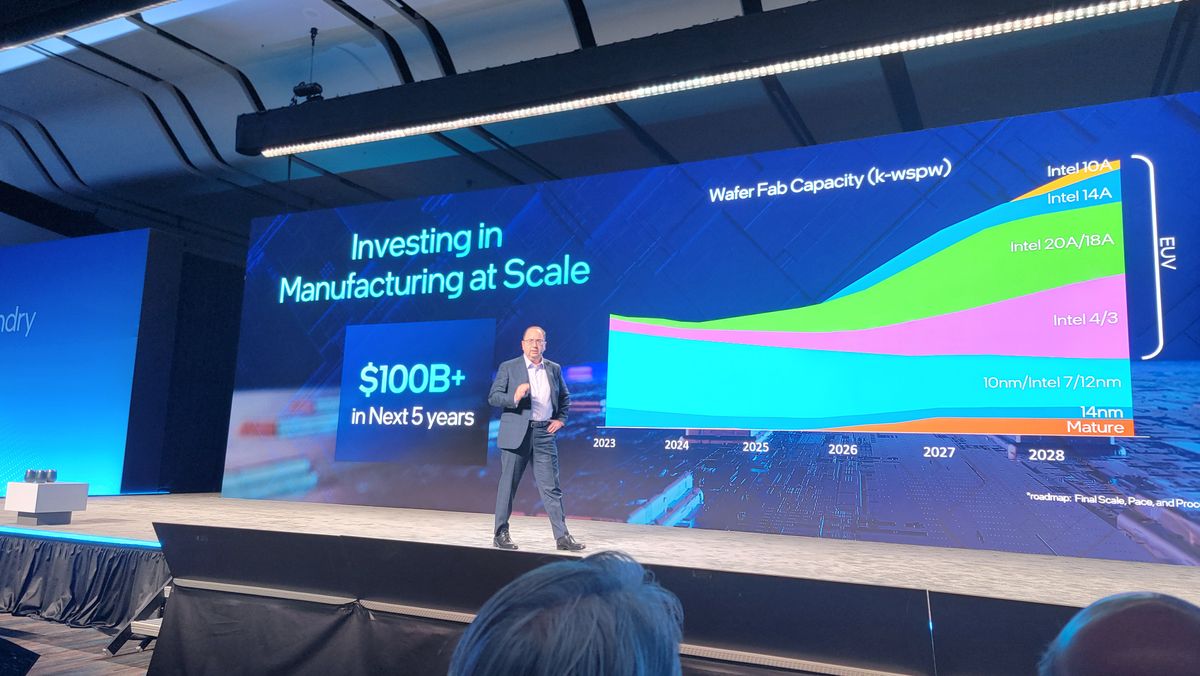Um...nothing to report yet. But creating 2024 threads. Er...Go, Intel! yay!
You are using an out of date browser. It may not display this or other websites correctly.
You should upgrade or use an alternative browser.
You should upgrade or use an alternative browser.
The Intel Execution in [2024]
- Thread starter Shifty Geezer
- Start date
Frenetic Pony
Veteran
Battlemage is, unsurprisingly, in software only stage as release readies for this year: https://wccftech.com/intel-arc-batt...good-news-coming-celestial-xe3-hardware-team/
Can I just say how much I appreciate Intel's marketing here? No alphabet/number soup like "Einstein RGXI 9900 GTS++", just "Alchemist, Battlemage, Celestial" then 3 numbers to indicate relative rank. We could only be so lucky to have Nvidia, AMD, (Qualcomm??) follow suit.
Can I just say how much I appreciate Intel's marketing here? No alphabet/number soup like "Einstein RGXI 9900 GTS++", just "Alchemist, Battlemage, Celestial" then 3 numbers to indicate relative rank. We could only be so lucky to have Nvidia, AMD, (Qualcomm??) follow suit.
There are no numbers in Nvidia's or AMD's codenames.No alphabet/number soup like "Einstein RGXI 9900 GTS++"
The obfuscation of the release order is needed to confuse the competition.
I dont know, GPU naming is reasonably straightforward across all the vendors to me. It's CPU's, and especially mobile CPU's/processors, where the naming gets frustrating and arguably deliberately anti-consumer, and here Intel is no better than AMD with their new changes.Battlemage is, unsurprisingly, in software only stage as release readies for this year: https://wccftech.com/intel-arc-batt...good-news-coming-celestial-xe3-hardware-team/
Can I just say how much I appreciate Intel's marketing here? No alphabet/number soup like "Einstein RGXI 9900 GTS++", just "Alchemist, Battlemage, Celestial" then 3 numbers to indicate relative rank. We could only be so lucky to have Nvidia, AMD, (Qualcomm??) follow suit.
arandomguy
Regular
Can I just say how much I appreciate Intel's marketing here? No alphabet/number soup like "Einstein RGXI 9900 GTS++", just "Alchemist, Battlemage, Celestial" then 3 numbers to indicate relative rank. We could only be so lucky to have Nvidia, AMD, (Qualcomm??) follow suit.
I don't think you should be necessarily thinking this is intentional as opposed to just a result of a smaller product stack. If they're product stack expands and they also need to start doing mid gen refreshes they will likely start feeling the need to revert to industry trends. Intel's CPU line for example follows the same broader industry naming formula.
Battlemage Rumor ...
Jan 15, 2024

 www.pcgamer.com
www.pcgamer.com
Jan 15, 2024

Hot GPU rumour time: Intel may follow AMD in just focusing on the mainstream market with its next-gen Battlemage chips
And if that's the case, it leaves the mega bucks market entirely to Nvidia.
We're barely two weeks into 2024 but the latest rumours surrounding the next generation of GPUs are already in full swing. And the claim this time is that Intel's next graphics architecture, Battlemage, won't be competing against the likes of the RX 7900-series or RTX 4080, but may instead focus on mainstream sales. As that's where the bulk of GPU sales are anyway, it would hardly be totally surprising if true, but it'll be disappointing if we have to wait another two years before there's a real third contender for the GPU halo crown.
...
Instead, the top-end Battlemage GPUs would have a 192-bit memory bus, 8MB of L2 cache, and 512MB of 'Adamantine' cache. Ada-mada-what? Believe it or not, that's a genuine thing and was unveiled in an Intel patent we've written about before. It's a Level 4 cache layer for CPUs but one that can also be accessed by the integrated GPU.
So what's it doing in a discrete GPU? Well, it would act like AMD's Infinity Cache in its RDNA 2 and RDNA 3 chips, helping to reduce the number of times the VRAM needs to be requested for data.
...
AMD, Intel, and Nvidia all use different terminology when they talk about their GPU's shaders but they all essentially do the same thing, i.e. one AMD Stream Processor or one Nvidia CUDA core carries out operations on one thread. So if that rumour is true, then one Battlemage XVE would be equivalent to two Alchemist XVEs.
However, that doesn't mean the Xe cores themselves are twice the size. All of the Alchemist GPUs have 16 XVEs per Xe core, but Intel could well drop that to 8 for Battlemage. This wouldn't be a massive change because this is how the Xe cores in Intel's HPC GPUs are currently arranged.
I mean if Battlemage will still have the same perf/transistor comparison with competition as Alchemist did then Intel wouldn't really have any other options but to compete in "mid-range" only.
Intel are open and willing to make chips for anyone and everyone

 www.tomshardware.com
www.tomshardware.com

Intel CEO Pat Gelsinger: I hope to build chips for Lisa Su and AMD
Cats and dogs, living together!
Intel Foundry will not only build chips for external customers using Intel's crown jewel process nodes, but also the full complement of all of its IP, including its leading-edge packaging technology.
Gelsinger responded."We'll start posting separate financials associated with that going forward. And the foundry team's objective is simple: Fill. The. Fabs. Deliver to the broadest set of customers on the planet."
"We hope that that includes Jensen (Nvidia), Christiano (Qualcomm), and Sundar (Google), and you heard today it includes Satya (Microsoft), and I even hope that includes Lisa (AMD) going forward. I mean, we want to be the foundry for the world, and if we're going to be the Western foundry at scale, we can't be discriminating about who’s participating in that. So, unequivocally, it is to be the foundry for the world. Commit supply chains, your leadership technology - the doors to the ala carte menu are wide open for the industry."
Would be very interesting to see how this turns out in 5 years time and how many would take up the potential opportunity. Intel's competitors possibly helping drive their fabs and other R&D, if Intel were to be the premier fab they could be the driving force behind tens of millions of units for their competition. Very interesting dynamic potentially if Nvidia and AMD's advances driven in part by Intel's advanced packaging, I wonder if they'd ever walk that back. At least this way Intel will always have some piece of the pieIn case you thought Gelsinger wasn't being clear, he doubled down on the statement in a later answer, saying, "So I want my foundry to be used by everybody. Period. We want to help build Nvidia chips, and AMD chips, and TPU chips for Google, and inference chips for Amazon. Period. We want to help them and give them the most powerful, performant, and efficient technologies for them to build their systems. Period. Full stop."

Intel will make chips for Microsoft
"I want to manufacture every AI chip in the industry," says Intel CEO Pat Gelsinger.
Will them make it into a new console/PC?
Possibly, Intel is manufacturer among many. But regardless more likely it'll be Maia / Cobalt future gens and other MSs "own" chips
Intel will make chips for Microsoft
"I want to manufacture every AI chip in the industry," says Intel CEO Pat Gelsinger.arstechnica.com
Will them make it into a new console/PC?
cheapchips
Veteran
Battlemage and the one after are apparently booked on TSMC. Wonder if this was just due to risk of their own process node roadmap not working and booking lead times. Presumably CPUs using Battlemage derived iGPUs will be made made in their own fabs.
Lunar Lake with Battlemage iGPU is TSMC even for x86 coresBattlemage and the one after are apparently booked on TSMC. Wonder if this was just due to risk of their own process node roadmap not working and booking lead times. Presumably CPUs using Battlemage derived iGPUs will be made made in their own fabs.
Intel has wanted to be in the foundry bussiness for years. In a sense, they bought Altera because they wanted to make FPGA chips for Altera. It's a reasonable decision because FPGA are relatively easy to fab. However, it didn't work well for Intel. Last year Intel announced the intention to spin off this subdivision into a separate company (with Intel still maintaining majority ownership).
There are a few obstacles for Intel to overcome to be successful in the foundry bussiness. The first one is culture. Intel has always been a process first company. That is, they design their CPU for their process. Their CPU designers have to make their design decisions based on how their process works. In the foundry bussiness, you'll have to be able to accomodate your cusomters' designs, in some ways at least.
Another obstacle is cost. It's much harder for Intel to reduce cost to the level of TSMC, because Intel has always been a vertically integrated company. To make chips for customers, they either have to be cost competitive, or they have to be more advanced. Right now they are facing a uphill battle on both fronts against TSMC.
Intel has been touting the benefits of being able to use Intel's IP. However, other than x86 I can't think of anything from Intel that's particularly attractive. Even x86 is not that attractive anymore.
There are a few obstacles for Intel to overcome to be successful in the foundry bussiness. The first one is culture. Intel has always been a process first company. That is, they design their CPU for their process. Their CPU designers have to make their design decisions based on how their process works. In the foundry bussiness, you'll have to be able to accomodate your cusomters' designs, in some ways at least.
Another obstacle is cost. It's much harder for Intel to reduce cost to the level of TSMC, because Intel has always been a vertically integrated company. To make chips for customers, they either have to be cost competitive, or they have to be more advanced. Right now they are facing a uphill battle on both fronts against TSMC.
Intel has been touting the benefits of being able to use Intel's IP. However, other than x86 I can't think of anything from Intel that's particularly attractive. Even x86 is not that attractive anymore.

Hot GPU rumour time: Intel may follow AMD in just focusing on the mainstream market with its next-gen Battlemage chips
And if that's the case, it leaves the mega bucks market entirely to Nvidia.
cheapchips
Veteran
Intel has wanted to be in the foundry bussiness for years. In a sense, they bought Altera because they wanted to make FPGA chips for Altera. It's a reasonable decision because FPGA are relatively easy to fab. However, it didn't work well for Intel. Last year Intel announced the intention to spin off this subdivision into a separate company (with Intel still maintaining majority ownership).
There are a few obstacles for Intel to overcome to be successful in the foundry bussiness. The first one is culture. Intel has always been a process first company. That is, they design their CPU for their process. Their CPU designers have to make their design decisions based on how their process works. In the foundry bussiness, you'll have to be able to accomodate your cusomters' designs, in some ways at least.
Another obstacle is cost. It's much harder for Intel to reduce cost to the level of TSMC, because Intel has always been a vertically integrated company. To make chips for customers, they either have to be cost competitive, or they have to be more advanced. Right now they are facing a uphill battle on both fronts against TSMC.
Intel has been touting the benefits of being able to use Intel's IP. However, other than x86 I can't think of anything from Intel that's particularly attractive. Even x86 is not that attractive anymore.
None of those challenges are stopping them winning billions of business on 18A. Are the just getting lucky due to the AI boom?
Last edited:
None of those challenges are stopping them winning billions of business on 18A. Are the just getting lucky due to the AI boom?
Intel haven't been making large quantity of chips for other companies for years (some may argue that they never did with "large quantities"), so let's just wait for first shipments.
This is not unlike Boeing or Airbus selling "airplane options" (for example Airbus sold 27 "options" for A380F but none delivered) though obviously the customers are committing a bit more (you'll need to use their design rules, etc.)

Intel: I Was Lostry, But Now I Am Foundry
Pat Gelsinger, current chief executive officer at Intel and formerly the head of its Data Center Group as well as its chief technology officer, famously
 www.nextplatform.com
www.nextplatform.com
In the future that Gelsinger has been trying to create for Intel, the foundry will have to live by its merits and so will the chip product groups – and independent of each other in terms of P&L but absolutely dependent upon each other as any chip designer is with its foundry partner.
Intel can only be a foundry if it has more than one customer, and that means it must attract the likes of Nvidia, the Arm collective, Broadcom, and others such as the hyperscalers and cloud builders who are designing their own chips – often to get time to market and other advantages like lower costs and greater control compared to relying on Intel’s chips – to adopt its chip etching and packaging. And that means literally arming the competition with the best chip and packaging technology that Intel can bring to bear.
Battlemage Rumor ...
Jan 15, 2024

Hot GPU rumour time: Intel may follow AMD in just focusing on the mainstream market with its next-gen Battlemage chips
And if that's the case, it leaves the mega bucks market entirely to Nvidia.www.pcgamer.com
It could be a good route for them to take. The nvidia stuff is very expensive so if they could bring in 4080 performance with battlemage and price it at $500 or so they could have a real winner. I'm still sitting on my 3080 because nothing really offers much better at the sub $700 price I want to spend.
That seems quite optimistic. I'd expect maybe 4070 performance for like $450 or something.It could be a good route for them to take. The nvidia stuff is very expensive so if they could bring in 4080 performance with battlemage and price it at $500 or so they could have a real winner. I'm still sitting on my 3080 because nothing really offers much better at the sub $700 price I want to spend.
Doing 4080 performance on TSMC 5nm family process would require something quite large, unless Battlemage has made unexpectedly amazing strides in terms of performance-per-mm² compared to Alchemist.
Either way, that article comes a RedGamingTech rumor, so is positively useless. It's frustrating seeing proper outlets running with these stories based on such terribly discreditable sources.

Intel puts 1nm process (10A) on the roadmap for 2027 — also plans for fully AI-automated factories with 'Cobots'
1nm chips to arrive in late 2027.
Similar threads
- Replies
- 46
- Views
- 5K
- Replies
- 201
- Views
- 11K
- Replies
- 19
- Views
- 2K
- Replies
- 19
- Views
- 2K

